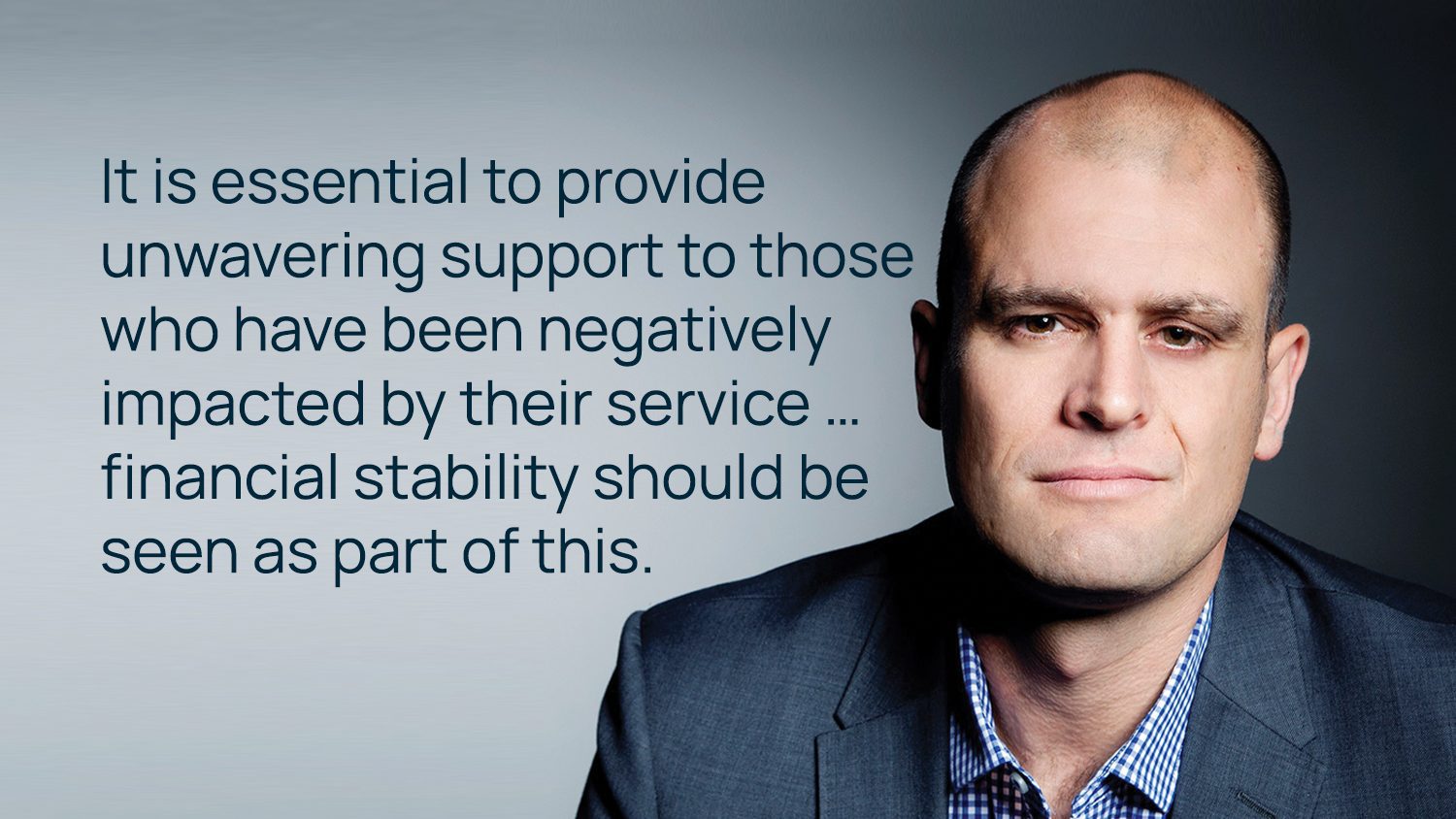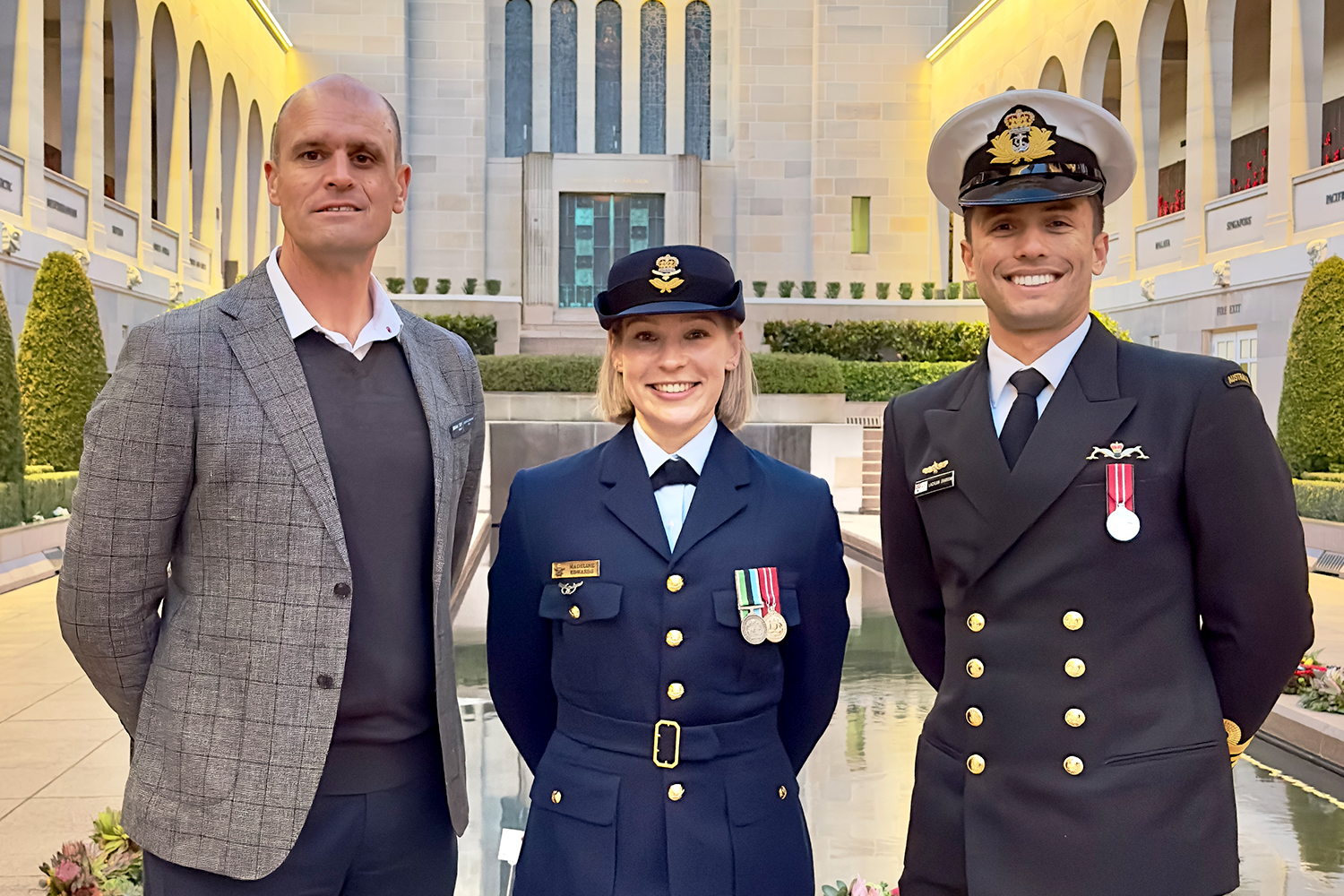The Royal Commission into Defence and Veteran Suicide has been a pivotal moment in Australia’s recent history, shedding light on a deeply troubling issue.
It can never be forgotten that military service offers significant positive aspects that contribute to the strength of our country. Veterans often become pillars within communities, bringing with them leadership, and a strong sense of duty and service. The vast majority of veterans leave the service standing tall and smiling, having experienced a truly remarkable chapter in their lives filled with pride and accomplishment.
It is essential, however, to provide unwavering support to those who have been negatively impacted by their service, ensuring they receive the care and respect they deserve as they make their way in life. By addressing these issues with compassion and determination, we can create a future where fewer families have to endure such devastating losses.
The Royal Commission held 88 days of public hearings and on every day, one woman sat in the public viewing area listening carefully to every word from every witness. That mother’s son was an Australian Navy Petty Officer who died by suicide in 2019.
As if her own pain was not unbearable enough, she sat through more than 300 witnesses recount their harrowing stories of loss and grief. Many mothers spoke and more joined the public vigil with a united sense of grief, members of a club no one wants to join.
These mothers were the driving force behind the Royal Commission through their relentless campaigning that ultimately prompted action from the Morrison Government. And it was the presence of these mothers who lost their adult children, who were veterans, to suicide who left me with the most profound and heart-wrenching memory of the hearings.
These women stood as reminders of the ultimate cost military service can have. They were not just grieving; they were enduring an all-consuming sorrow that seemed to have hollowed out their very beings.
My involvement in the Royal Commission was largely clinical, focusing on presenting evidence — both statistical and anecdotal — regarding the financial challenges facing veterans, as seen in my role as CEO of Bravery Trust.
It is easy to idealise the notion that no veteran should suffer as a result of their service — that no veteran should endure prolonged mental anguish, struggle with the moral complexities of their experiences, or suffer from a loss of identity upon leaving the military.
The hope that no veteran should die by suicide is, unfortunately, far from simple. The harsh reality is that as long as global conflicts persist, the need for military personnel will continue. These individuals will undergo rigorous training, face intense tests, and experience trauma, all of which can have profound and lasting impacts.
Despite these challenges, there are clear risk factors that can and should be addressed. We must identify and support those at greater risk, particularly during the crucial transition from military to civilian life. This period is often fraught with difficulties, especially for those who are medically or administratively discharged – forced out of a career against their choosing. These individuals are statistically more likely to face significant struggles post-service, including mental health issues and financial difficulties.
A critical aspect of this support involves addressing the identity crisis many veterans face upon leaving the military. Serving and former Defence personnel often tie their sense of self-worth and identity to their military service. They essentially sign a blank cheque to the nation. In return, they gain a profound sense of dignity and pride. However, when they transition out of the military, this identity can be severely disrupted, leading to a sense of loss and confusion.
In the aftermath of the Royal Commission, we must overlay protective measures for veterans, focusing not only on mental and physical health but also on fostering social connections and a renewed sense of identity. Financial stability should be seen as part of this broader support framework, not as a standalone issue. By addressing the full spectrum of challenges faced by veterans, we can provide a more robust and effective support system.
One of the biggest issues is that the current Australian veteran landscape is diverse, making it nearly impossible for a single organisation to cover all aspects of support. Veterans span a wide range of ages and life stages, from young individuals transitioning to civilian life to older adults requiring aged care. Their needs vary significantly, including employment assistance, socialisation opportunities, mental health support, and physical rehabilitation.
The Royal Commission has led to discussions about the establishment of an Ex-Service Organisation (ESO) peak body, that could serve as a unified voice and advocate for veterans, ensuring their needs are met in a holistic manner. We need to make it easier for veterans to navigate the support programs that exist and the establishment of an ESO peak body could provide a crucial link between veterans and the various support services available, helping to navigate the often complex landscape of assistance programs.
Such an organisation would also provide oversight of the many charities, to ensure best practice, innovation and collaboration. The veteran community deserves expert and specialised support, especially in the key areas of health, social connection, housing, employment and finance.
The establishment of an Ex-Service Organisation peak body would ensure that we, the veteran community, make best use of the resources we have to do better in looking after our own.
Garth Callender – Chief Executive of Bravery Trust








